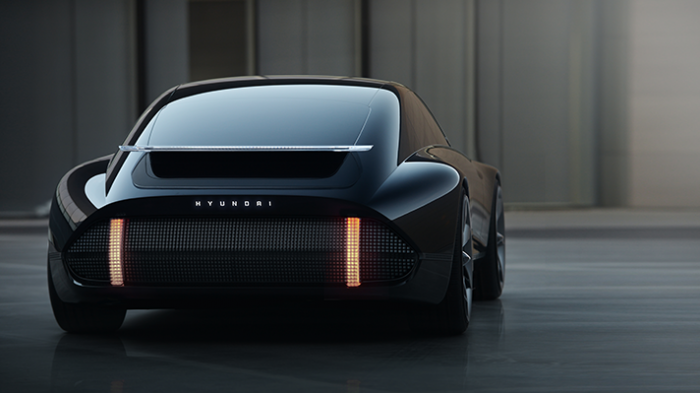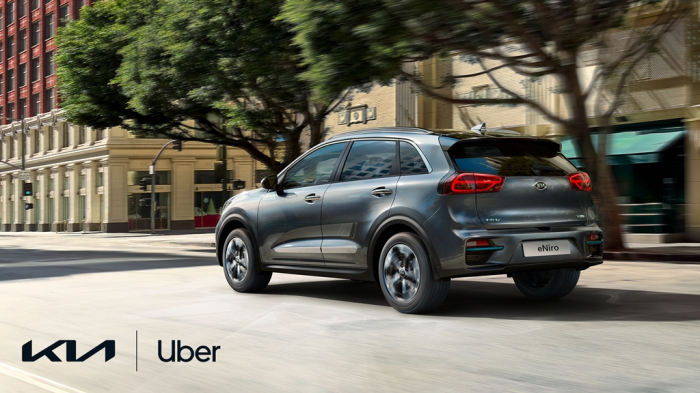Carmakers gear up for sharp price hikes in 2022
Hyundai and Kia tipped to increase the prices of 2022 models by 5% on average
By Dec 05, 2021 (Gmt+09:00)
LG Chem to sell water filter business to Glenwood PE for $692 million


KT&G eyes overseas M&A after rejecting activist fund's offer


Kyobo Life poised to buy Japan’s SBI Group-owned savings bank


StockX in merger talks with Naver’s online reseller Kream


Meritz backs half of ex-manager’s $210 mn hedge fund



Car prices will likely rise sharply next year alongside the industry shift from combustion engine models to electric vehicles as automakers prepare to pass on the rapid rise in raw material costs to the buyers of their upcoming models.
South Korea's Hyundai Motor Co. and Kia Corp. have decided to raise the prices of their new vehicles to be launched next year by an average of 5%, a sharper rate than their average annual increase of 1-2%, according to industry sources on Sunday.
That means its customers will have to pay an additional 1.5 million to 4 million won ($1,300-$3,400) on average to buy a Hyundai car, the sources said.
Due to the global semiconductor shortage and logistics bottlenecks with the onset of COVID-19's new Omicron variant, drivers are facing a delay in taking delivery of their new cars by three months to up to one year. But their demand has not abated.
Last October, the price of new cars sold in the US climbed 12.1% on-year to an average of $45,031, according to Kelley Blue Book, an automotive research firm.
For Hyundai, the price of the highest-end model of its Grandeur sedan edged up 0.9% this year, or 400,000 won ($340) to 43.9 million ($37,100) from a year earlier. In 2022, a buyer of the sedan will likely have to pay an extra 2 million to 4 million won ($1,700-$3,400), equivalent to a 5% increase, from last year's price tag.
Soaring raw material prices from iron ore, copper, aluminum, plastic and rubber fueled the price surges in automotive steel sheets, tires and air conditioning components. In particular, Hyundai recently agreed to raise steel sheet prices by 120,000 won per ton supplied by POSCO Co. and Hyundai Steel Co. That compared with an increase of 50,000 won in the first half of this year.
The sharp price hike in steel sheets reflected a 63.4% surge on-year to $165 per ton in the third-quarter price of iron ore, used to produce steel, according to Hyundai Motor.
| Raw materials | Year-on-year price change in Q3 |
| Iron ore | 63.4% |
| Aluminum | 40% |
| Copper | 48.6% |
| Plastic | 23.7% |
| Source: Hyundai Motor | |
EV PRICES SEEN TO STAY FIRM
The story is the same for the burgeoning EV market. The prices of lithium, nickel and cobalt, core minerals used for rechargeable battery cathode materials, are on a rapid rise. Batteries make up 30-40% of EV manufacturing costs.
The price of lithium-ion battery packs is projected to rise 2.3% to $135 per kilowatt-hour (kWh) next year, compared with $132 in 2021, according to BloombergNEF. It will be the first time for the battery pack price to turn higher since the research service firm started compiling the data in 2012.
For EVs to secure price competitiveness over combustion engine vehicles, the battery pack price needs to decline to at least $100 kWh.

But the global supply chain squeeze for battery materials is showing no signs of easing.
Indonesia, home to 20% of the world's nickel reserves, has banned nickel exports since last year, a move seen aimed at giving priority to battery plants located in its country.
For cobalt, China controls about 70% of the cobalt mines in Congo, which produces more than 70% of the cobalt in the world.
Tesla Inc, the world's largest EV maker, has bumped up its vehicle prices seven times so far this year, followed by global carmakers such as Ford, Volkswagen and Toyota.
Adding a burden to EV drivers, South Korea's environment ministry is proposing a cut in subsidies to EV buyers from next year. To do so, the ministry is working on a revision to the relevant laws, which automotive industry watchers said could dampen demand for EVs.
Meanwhile, South Korea's consumer prices soared 3.7% last month from a year earlier, the fastest growth since December 2011 and up from 3.2% in October of this year.
Write to Hyung-kyu Kim and Il-gyu Kim at khk@hankyung.com
Yeonhee Kim edited this article.
-
 AutomobilesGlobal carmakers deliver unfinished cars due to chip shortage
AutomobilesGlobal carmakers deliver unfinished cars due to chip shortageNov 15, 2021 (Gmt+09:00)
3 Min read -
 Auto manufacturing costsHeavy cost pressure set to drive up car prices
Auto manufacturing costsHeavy cost pressure set to drive up car pricesJun 01, 2021 (Gmt+09:00)
3 Min read -
 Tire price hikesKorea’s major tire makers to raise prices as rubber supply tightens
Tire price hikesKorea’s major tire makers to raise prices as rubber supply tightensMay 31, 2021 (Gmt+09:00)
2 Min read


